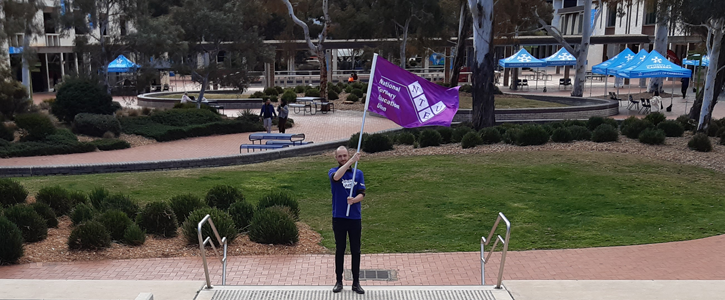100 signatures reached
To: ANU Vice-Chancellor Prof. Brian Schmidt, UC Vice-Chancellor Prof. Deep Saini, UNSW Canberra Rector Prof. Michael Frater and ACU Campus Dean (Canberra) Assoc. Prof. Patrick McArdle
Allow ACT University Staff & Students to Attend Global Climate Strike

We are calling on Canberra’s universities and leaders to support the Global Climate Strike on Friday September 20 from 12-2pm in Glebe Park, Canberra, and to allow staff and students to attend without penalty for missing work or class. We are calling on these institutions to allow staff to take this time to support this cause without penalty, should they wish, as a democratic, civic duty and community service.
Why is this important?
On Friday September 20, school students around the world, alongside adults, will be participating in a Global Climate Strike – they will be marching to face the ongoing climate crisis, and to show the world’s political leaders that we will not idly stand by while they fail to act. We demand immediate action to avert otherwise inevitable catastrophe.
In Australia, we are at a crossroads: the Government is fully aware of the need for serious solutions, but instead it would rather open up new projects to mine the earth of even more fossil fuels: Australia’s coal industry has already made us the world’s third-biggest emissions exporter.
Internationally, the effects of climate change are already being felt in very real ways: this summer, Greenland’s ice sheet melted at rates scientists weren’t anticipating for another half-century, losing enough water in just five days this year to cover the ACT in over 9 metres of water.
Our role as the University community is to educate and support the next generation who will continue to make this world a better, more equitable, fair, and just place than they found it. If our political leaders do not act now, this will not be possible – and as we already know: ‘There are no jobs on a dead planet.’ There’s also less water, more famine, more poverty, more extreme weather events, millions of displaced and suffering refugees, and likely, much more conflict. We have a responsibility to stand tall alongside the next generation in support of this important cause that will shape the world for hundreds of years to come, and to advocate for a rapid and just transition to renewables and a decarbonised economy.
The Global Climate Strike is taking place three days before the UN Emergency Climate Summit, and is a strike in solidarity for those being impacted by the climate crisis now, and those who will be impacted in the future if we do not act: everyone from workers, first nations people, and young people, to those in parts of the world already suffering. High-profile businesses like Patagonia, Lush Cosmetics, and Ben & Jerry’s have already pledged that their workers will be joining the organised strikes in solidarity.
In Australia, we are at a crossroads: the Government is fully aware of the need for serious solutions, but instead it would rather open up new projects to mine the earth of even more fossil fuels: Australia’s coal industry has already made us the world’s third-biggest emissions exporter.
Internationally, the effects of climate change are already being felt in very real ways: this summer, Greenland’s ice sheet melted at rates scientists weren’t anticipating for another half-century, losing enough water in just five days this year to cover the ACT in over 9 metres of water.
Our role as the University community is to educate and support the next generation who will continue to make this world a better, more equitable, fair, and just place than they found it. If our political leaders do not act now, this will not be possible – and as we already know: ‘There are no jobs on a dead planet.’ There’s also less water, more famine, more poverty, more extreme weather events, millions of displaced and suffering refugees, and likely, much more conflict. We have a responsibility to stand tall alongside the next generation in support of this important cause that will shape the world for hundreds of years to come, and to advocate for a rapid and just transition to renewables and a decarbonised economy.
The Global Climate Strike is taking place three days before the UN Emergency Climate Summit, and is a strike in solidarity for those being impacted by the climate crisis now, and those who will be impacted in the future if we do not act: everyone from workers, first nations people, and young people, to those in parts of the world already suffering. High-profile businesses like Patagonia, Lush Cosmetics, and Ben & Jerry’s have already pledged that their workers will be joining the organised strikes in solidarity.

